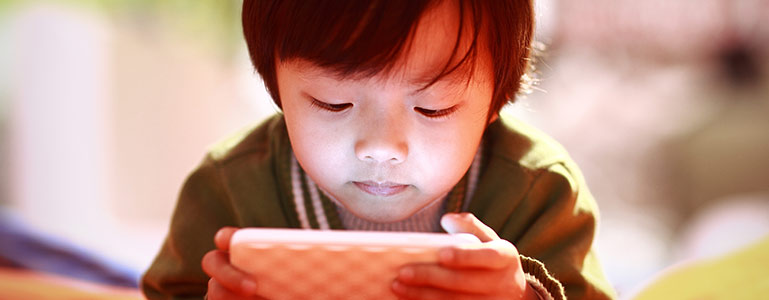At their best modern devices are helpful tools and can make our lives easier. At their worst, they are remarkably addictive, and research now clearly shows that their use can lead to a host of behavioral, interpersonal, and mood issues for people of all ages.
If you are reading this, you likely have a young child or adolescent. I have some bad news for you—for young children in particular, screen-time has been shown to have negative effects on sleep (which can also negatively impact mood and lead to behavioral issues), social interaction and learning, executive functioning (e.g., self-regulation and working memory), and attention.
The American Academy of Pediatrics (AAP) released a new policy statement on children’s media use last fall. Some key recommendations include:
- For children younger than 18 months avoid use of screen media other than video chatting.
- For children ages 2 to 5 years limit screen use to 1 hour per day of high-quality programs. (The recommendation also says that parents co-view media with children to help them understand what they are seeing and apply it to the world around them.)
- For children ages 6 and older place consistent limits on the time spent using media, and the types of media, and make sure media does not take the place of adequate sleep, physical activity and other behaviors essential to health.
- Designate media-free times together such as dinner or driving, as well as media-free locations at home, such as bedrooms.
With upcoming family vacations in mind, I offer up the following suggestions to both support your child’s social-emotional well-being and to foster deeper connections within your family.
- Consider making changes to your child’s screen-use routine. You can reduce daily time spent on devices, restrict types of media accessed (or the allowed reasons for using devices), or even eliminate screen use during certain times of the day. If you do decide to try the latter, I recommend eliminating screens during shorter car rides, before school, during meals, and/or before bed. These tend to be the times that can lead to the most issues and tend to be used in passive, non-educational ways. Be sure to sit down as a family, discuss the reasons for the rule change, and allow your children to voice some input. (Expect some pushback.)
- Take a complete digital detox as a family! Exciting, right? Well digital detoxes are all the rage these days. Planning one with your family can be an exciting experiment. Pick a weekend or week in the coming months (perhaps next week to celebrate Screen-Free Week?) and go “off the grid” . Parents, that includes YOU! And don’t forget to plan a few low cost supplementary activities that you can do together. Or you many want to plan your detox on a family vacation this summer.
Need help planning a digital detox or have other questions about parenting? Schedule a consultation at Parents Place.
Robyn Matlon, M.Ed., M.A., Psy.D., is a licensed psychologist with specialized training in play therapy, child development, attachment, depression, anxiety, complex trauma, and post-traumatic stress disorder. Robyn conducts comprehensive psychological assessments of children for a range of issues, including learning, attention, and memory challenges, as well as struggles with social-emotional or behavioral functioning. Her approach is strengths-based, collaborative, and draws on psychodynamic, cognitive-behavioral, mindfulness and play therapy techniques. Robyn can be reached at Parents Place in Marin County: 415-419-3625 or [email protected].



